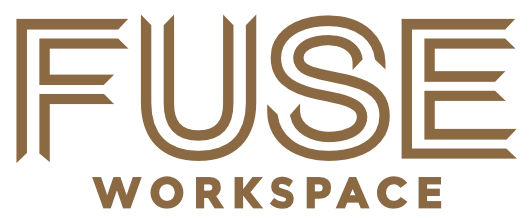Demand for Innovative Workspaces Expected to Surge
- FUSE
- May 20, 2021
- 3 min read
Believe it or not, there are approximately 35,000 flexible works spaces in the world today. This number is even more astonishing considering the fact that the concept was virtually non-existent a little more than a decade ago. The increased demand for innovative workspaces has been driven in large part by a rise in people starting their own businesses, particularly in the tech industry.
There has also been a general trend toward more remote working. This has been accelerated by the COVID-19 pandemic. As more people get vaccinated and government restrictions are lifted, many will return to their regular work offices. However, most experts agree that the number of workers in so-called “traditional” settings will almost certainly never return to pre-pandemic levels.
According to a recent survey by Global Workplace Analytics, 76 percent of employees want to continue working remotely at least two to three days per week. The same survey also reported that an increasing number of companies are choosing to ditch traditional office leases in favor of coworking and more flexible workspaces. According to the report, 77 percent of employers say that allowing employees to work remotely lowers their operating costs.
Newly opened FUSE Workspace in Bee Cave, was founded by and CEO Mike Daugherty, who discovered the coworking concept while working from home on his own hospitality business. He was in search of a setting that was more efficient and allowed him to be in a community with other like-minded individuals. In 2018, he developed a 40,000 square-foot collaborative office building in his native Prosper, Texas to bring flexible workspace to his community. Bee Cave is their newest property which opened in November of 2020.
“FUSE exists to help people DO MORE® not
only in their vocation, but also do more in their community and more in the world,” Daugherty said. “Our customers are successful, and we want to help them be more successful in whatever their endeavors are. We have targeted the suburbs to open our properties, because we believe suburban workers are underserved.” Today FUSE owns and operates over 95,000 square feet of flexible workspace between Bee Cave, Houston and Prosper.
Between 2017 and 2020 the percentage of coworking space in the United States as a percentage of total office space nearly doubled. According to the Commercial Observer, that number will likely double again, and possibly triple, over the next five years. It’s estimated that 20 percent of workers now use a coworking space at least once a week. That’s an increase from 14 percent just two years ago. Also, a whopping 43 percent of all workers would consider working from a company-provided coworking location a few times a week if it were nearer their home.
A global coworking growth study conducted jointly by Coworking Resources and Coworker projects that five million people will work from coworking spaces by 2024. The industry has seemingly recovered from the downturn caused by the pandemic, with some regions already exceeding pre-COVID levels.
Daugherty believes that the key to a successful co-working space is realizing that we are in the hospitality and service business, not the business of leasing space. Daugherty stated that, the overriding goal should be to build a community
of fans, not customers.” Daugherty explained that they create fans by cultivating unique flexible spaces that can accommodate single person offices or even team suites for larger enterprises and wrapping all of their offerings with a high level of hospitality. “We love being part of our community and helping our members DO MORE®.” More information on FUSE can be found at FUSEworkspace.com.
The amenities workers expect from innovative workspaces vary greatly. Some people simply want a private office where they can go to work away from home. Others are perfectly happy working from home but need a more professional setting where they can meet with clients or collaborate with colleagues. The common thread between them is the need to have a place where they can more effectively perform tasks they can’t easily do at home. Demand for this will likely continue to increase as more companies transition toward a hybrid work model that requires fewer trips to the office.















Comments